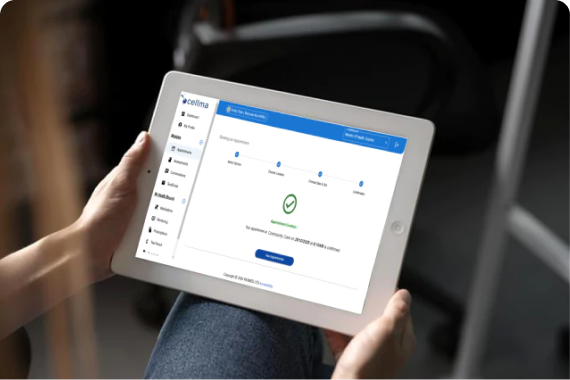Smarter Care with Cellma’s Behavioural Health EHR
Smarter Care with Cellma’s Behavioural Health EHR
Mental health is central to our overall well-being, affecting individuals, families, and communities worldwide. With rising demand for timely and effective support, health systems such as the NHS and international providers face increasing pressure to deliver high-quality mental health services. Meeting these needs requires not only clinical expertise but also secure digital systems that manage sensitive data, connect care teams, and enable early intervention. An EHR behavioural health system is essential, providing a structured, integrated platform to record, monitor, and share mental health information across care settings.
Cellma is a comprehensive behavioural health EHR solution designed specifically for the challenges of mental health services across the UK and globally. It unifies patient records, assessments, referrals, and recovery outcomes into one interoperable system. Built to support integrated care and aligned with the UK’s NHS Long Term Plan, Cellma enables mental health trusts to improve access, reduce waiting times, and ensure that mental health is given the same priority as physical health.


Aligned with NHS 10-Year Plan:
Cellma is purpose-built to support these goals through prevention-focused, digitally enabled, and integrated community care.















Suicide risk assessments and early warning alerts, safeguarding workflows built in to protect patients at risk.








Lower admin costs with digital workflows and fewer missed appointments. Optimised resource allocation using analytics tool.
For staff, freeing more time for
patient care.
Thanks to improved patient
engagement.
Between inpatient and community
teams.
Fully aligned with the NHS 10 Years Plan and Mental Health Implementation Plan, supporting early intervention, crisis care, and joined-up digital services.

Cellma’s AI analyses clinical data to identify patients at risk of relapse or crisis, allowing earlier and safer interventions.



AI-powered dashboards in Cellma reveal population-level trends, care gaps, and outcome patterns to guide service planning and resource allocation.
Cellma meets GDPR, the Data Protection Act 2018, NHS DSPT, ISO 27001, and Cyber Essentials Plus, therefore ensuring safe usage of sensitive and complex data related to mental health.
Yes, Cellma connects fully with GP Connect, Shared Care Records, PDS basing and other NHS systems, and is also interoperable with HL7, FHIR, and SNOMED CT, for internationally relevant.
Cellma will provide use of a number of validated tools (e.g. PHQ-9, GAD-7, HoNOS, some risk assessments). This enables the capture of clinical data in structured forms, while monitoring outcomes.
Trusts can expect to see reductions in waiting times, improved patient recovery statistics, more effective coordination and organisation of care, increased staff productivity, and support to comply with NHS targets.